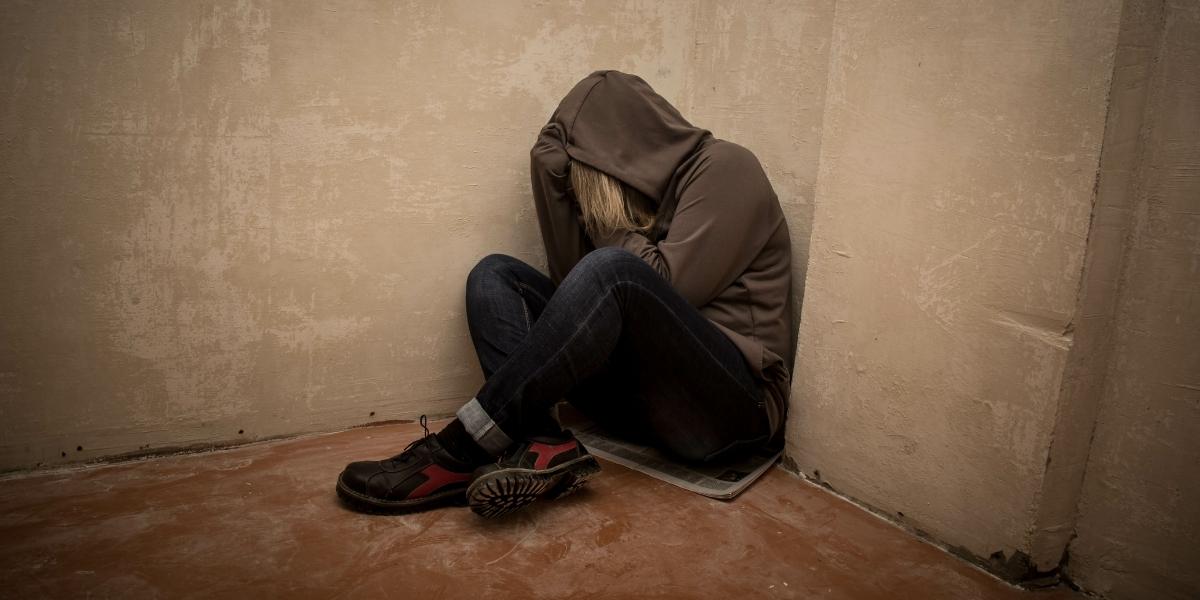Heroin Withdrawal Symptoms
Detox and Treatment

Quitting heroin can cause uncomfortable withdrawal symptoms that are typically compared to the flu but can also result in extreme and sometimes life-threatening side effects.
Struggling with addiction and substance use disorders involves a lot of difficulties. One of the hardest may be going through withdrawal before starting your recovery process.
Heroin abuse and heroin use disorders are increasingly common. Unfortunately, it is hard to predict how severe heroin withdrawal will be. The most successful way to treat the symptoms is with safe heroin detox programs and treatment centers that offer follow-up therapies with professional guidance.
Before you attempt to withdraw from heroin on your own, you should seek medical advice and ask about other options that may be safer and less agonizing, including medical detox and in-patient treatment programs.
What Is Heroin Withdrawal?
Heroin withdrawal is the mental and physical effects a person experiences when they stop taking the drug caused by dependency on the substance.
Withdrawal from heroin can be intentional when a person tries to get clean, or it can happen if someone goes too long between fixes.
Heroin is a short-acting opioid, it kicks in quickly, but the body also eliminates it faster than some prescription opioids, meaning faster onset withdrawal.
Drug cravings and heroin withdrawal symptoms can start within six to eight hours after the last dose.
The length and severity of withdrawal will vary from person to person. Factors that influence the length of time withdrawal lasts include:
- Underlying health issues
- Mental health issues
- Length of addiction
- Other substances abused
- Method of heroin ingestion
- Tolerance
- Previous withdrawal experiences
People who have gone through withdrawal have a high risk of overdose if they relapse due to decreased tolerance.
What Causes Heroin Withdrawal?
The brain and body become physically dependent on heroin; they alter chemical production, build a tolerance, and go into opioid withdrawal when they aren’t getting heroin anymore.
When a heavy or long-term heroin user stops using heroin, the body goes into overdrive, compensating for the lack of chemicals and purging the remaining toxins.
Withdrawal from heroin affects behavioral health, mental health, and physical health.
People who struggle with heroin use disorder and substance abuse who try to self-detox from heroin often relapse because withdrawal is so uncomfortable and intense.
The more relapses a person with heroin use disorder experiences, the likelihood of dangerous and intense withdrawal symptoms increases.
Even people informed about the dangers of withdrawal and the symptoms often find it too overwhelming and require professional help to stop successfully.
What Are the Symptoms?
The symptoms of heroin withdrawal are different for everyone, but they will range from mildly distressing to life-threatening.
People with mental health issues or who have gone through withdrawal before are more likely to experience intense symptoms.
Symptoms of heroin withdrawal include:
- Nausea and vomiting
- Sweating
- Drug cravings
- Exessive eye-watering
- Runny nose
- Body soreness
- Muscle aches
- Twitching
- Insomnia
- Anxiety
- Abdominal pain
- Diarrhea
- Dehydration
- Agitation
- Mood swings
- Depression
- Suicidal thoughts
- Dizziness
- Paranoia
- Hallucinations
- Vivid dreams
- Slowed breathing
- Fluctuating heart rate
- Seizures
- Coma
- Death
You should always consult medical professionals before you quit taking heroin; they may recommend medical detox to keep you safe.
If symptoms of withdrawal become concerning or overwhelming, seek emergency help.

How Long Does Heroin Withdrawal Last?
Heroin withdrawal can last four to ten days. Although, the length of time for withdrawal differs for each person, just like the intensity of the symptoms.
Most physical symptoms will be the worst around two to four days into withdrawal, but that is also when people are most likely to relapse to alleviate the withdrawal symptoms.
The mental health symptoms of heroin withdrawal can last longer.
People who have previously gone through drug and alcohol withdrawal might experience protracted withdrawal. Protracted withdrawal symptoms are not constant but can appear randomly for up to two years without help from medical professionals.
According to the Substance Abuse and Mental Health Services Administration (SAMHSA), most protracted withdrawal symptoms are mental and behavioral. Some psychological symptoms of protracted heroin withdrawal include:
- Decreased focus
- Sleep disturbances
- Depression
- Dysphoria, a constant feeling of uneasiness or general dissatisfaction with life
- Fatigue
- Decreased cognitive function
- Anxiety
- Reduced sex drive
Repairing and maintaining mental health is as important as physical health to recover from heroin addiction successfully.
Heroin Detox
Detoxing from heroin without medical supervision can be dangerous and frequently causes relapse or overdose.
The National Institute on Drug Abuse (NIDA) considers medication the first step of effective treatment when behavioral therapies and counseling follow but stresses that detox without follow-up usually results in relapse.
When most people hear the words “heroin detox,” they imagine someone covered in sweat, shaking, vomiting, and screaming for drugs because that’s what popular media always shows, but that’s extremely far from the reality of medical detox.
Medical detox helps reduce or eliminate the more uncomfortable withdrawal side effects and keeps you safe while medical professionals supervise and manage your symptoms.
Having a team that informs you of your progress and walks you through what is happening ahead of time and during withdrawal can be the difference between successfully achieving recovery and relapsing.
Detox is the first step in addiction treatment, not a cure for heroin addiction or the only thing it takes to be drug-free.

Treatment for Heroin Addiction
The thought that heroin detox is supposed to be hard or that suffering is a consequence of addiction is inaccurate and cruel. Overcoming addiction should be about finding healing and comfort from the beginning of the recovery process and throughout the rest of your life.
At Northridge Addiction Treatment Center, our residential treatment facility offers on-site medical detox that gives you privacy and surrounds you with care and support to ensure you make it through withdrawal safely and comfortably.
NATC uses evidence-based treatments and therapies backed by medical research to identify and treat the root causes of addiction for a successful and lasting recovery.
Medication-assisted treatment (MAT) will stabilize and manage potential mental health issues. Cognitive-behavioral therapy and dialectal therapy will help you develop life skills and habits to stay on the recovery path for the rest of your life.
Reach out today. Our specialized admissions team looks forward to answering any questions and concerns you have.
Find Meaningful Recovery
Our caring and compassionate specialists are eager to help you comfortably navigate this journey to recovery. Our individualized treatment plan, programs, and therapies may be a perfect match for you or your loved one. Let us assist you in living the happy life you deserve. It starts with a phone call.




